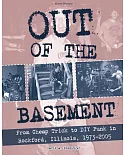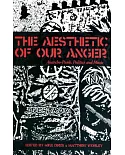A Transnational History of Punk Communities in Poland is a multi-regional study of the history and contemporary condition of two Polish punk
communities: the one in Warsaw and surrounding areas, and the Upper Silesian region: both rich in varied and sometimes conflicting punk traditions. The author, a self-identified member of the
punk subculture formerly living and active in Warsaw, explores the various political, economic and social dimensions of the development of these unique communities and the meaning of the punk
ethos for people across different age groups, genders, and life experiences, in relation to other subcultures, especially skinheads, and the broader society. An additional dimension, previously
unexplored in scholarship, are the ties between these Polish punk communities and their counterparts in the United States and Canada. The personal connections between early bands and the long
lasting transnational aspects of punk practices are shown to be an important factor in the shaping of punk attitudes across time and space. The economics of everyday punk life are discussed
referring to contemporary scholarship on the subject, punk lyrics, and ethnographies which throughout the book illustrate selected themes and problems. This study includes insight about obscure
yet foundational Silesian bands and their defiant, sardonic humor; about punk and anarchy, punk versus communism and the political opposition in the 1980s, punks’ attitudes toward
the transformation of 1989, about being a punk girl on the streets of Warsaw or Wodzislaw Slaski. Discover punk as an old subculture that cherishes its own past and remains an
important alternative to mainstream cultural practices in a rapidly “Westernizing” and corporatizing country.





















